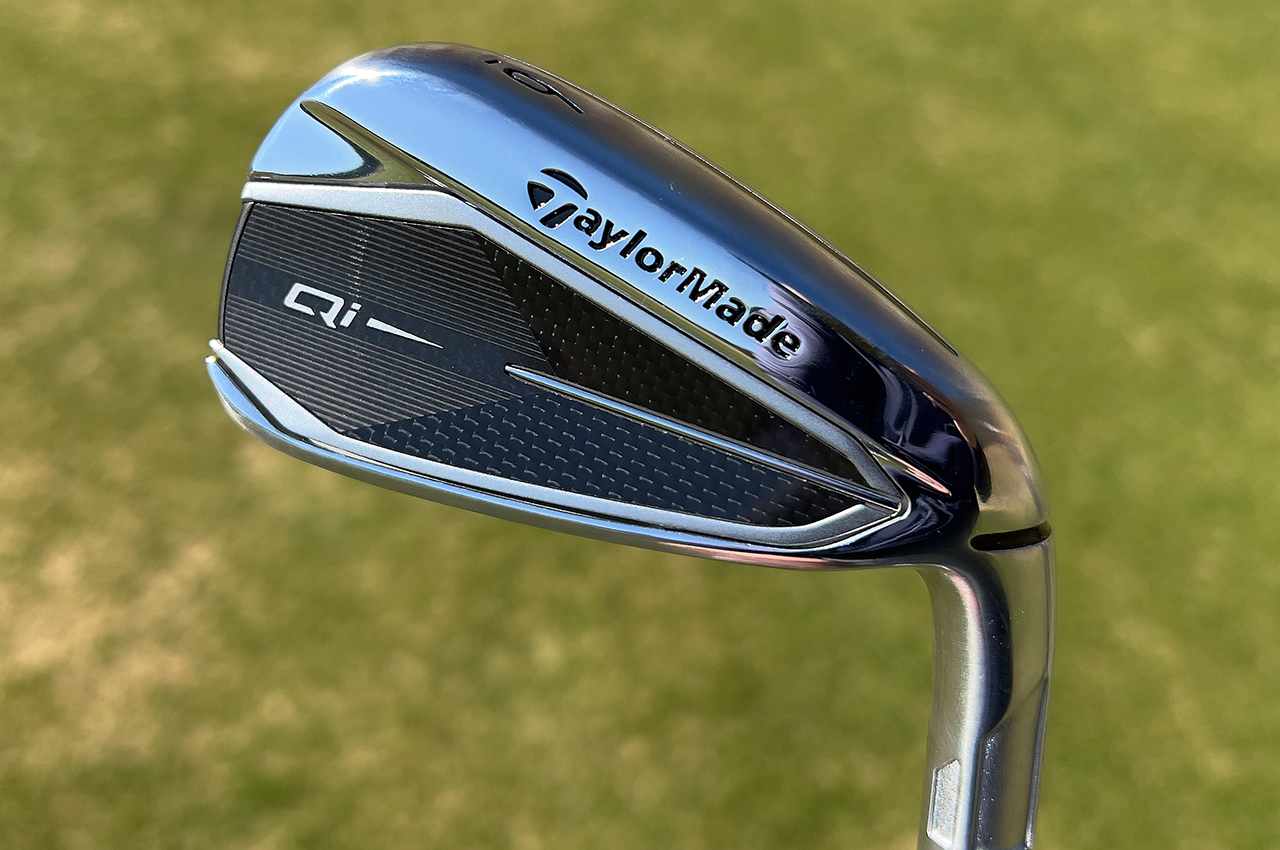Gear: TaylorMade Qi, Qi HL irons
Price: $1,099 with KBS Max 85 steel shafts and Lamkin Crossline 360 grips; $1,199 with Fujikura Ventus Blue TR graphite shafts
Specs: Hollow-body heads with multi-material back badge
Available: Feb. 2 (Qi), March 15 (Qi HL), but available for pre-order NOW
Who They’re For: Golfers with a handicap between 10 and 20 who want more consistency from shot to shot and enhanced ball-speed protection on mis-hits.
The Skinny: By modifying the thickness of each iron face and managing how the hitting area flexes, TaylorMade aims to improve accuracy and consistency for mid- and higher-handicap golfers.
The Deep Dive: For golfers who typically shoot in the 80s and 90s, the most-common miss off the tee with a driver is to right because they slice. With game-improvement irons, many of the same players also struggle with a right miss, especially with their long irons, but for a different reason. With the release of the new Qi and Qi HL irons, TaylorMade set out to help golfers improve their accuracy from the fairway, especially with their long irons, while also providing more distance and enhanced feel.
TaylorMade said the typical construction of a game-improvement long iron can significantly contribute to the right miss. As the blade length grows longer, the toe side of the hitting area bends back more at impact than the heel side, even on shots hit in the center of the face, creating a fade bias. As blade lengths grow shorter in the scoring clubs – such as the 7-iron, 8-iron and 9-iron – the effect decreases, which is why many golfers don’t see the impact in fittings because the 7-iron is commonly used in iron fittings.

The faces of the Qi irons have been made thicker in some areas and thinner in others to enhance consistency. (David Dusek/Golfweek)
With the Qi and Qi HL irons, TaylorMade has brought a design philosophy that debuted in its recently released P·790 irons – individual head optimization – to game-improvement clubs. In the P·790, that meant shifting the center of gravity in each iron to a different location to make it easier to hit the type of shots players often hit with that specific club. In the Qi and Qi HL, it involves integrating the face thickness, the Speed Pocket slot, topline ribs and the toe wrap.
In the long irons, TaylorMade made the low-toe portion of the face thicker so it flexes less, and the area close to the heel is thinned so it bends more easily at impact. In addition to making the hitting area flex more uniformly, which should help golfers hit straighter shots, by adding mass low in the hitting area and stiffening the metal around the Speed Pocket slot in the sole, the Qi and Qi HL long irons can help golfers get long-iron shots up more quickly.
Most golfers don’t struggle to get a 7-iron high in the air because it has more loft, so TaylorMade designers modified the construction and made the high-toe area stiffer while the area around the Speed Pocket is thinner and more flexible. To enlarge the sweet spot, the area around the edge of the face is very thin.
The Speed Pocket has not been designed into the 8-iron, 9-iron and wedges, and the thickest regions of the hitting area are once again high in the toe. This design should help golfers control spin and trajectory more easily.
While each Qi and Qi HL iron is designed slightly differently, they share several common technologies that make the set cohesive.
All the Qi and Qi HL irons have an internal Echo Dampening Bridge that runs from heel to toe behind the face and soaks up excessive vibrations to improve sound and feel. They also feature a 360-degree undercut cavity design covered by a multi-material back badge. TaylorMade refers to this as Capback, a feature that debuted in 2021’s SIM2 irons. The composite back section reduces weight from the back of the head while still allowing the face to flex efficiently.
These irons have a thicker topline and ample offset, which is common among game-improvement irons. The sole is also fairly broad, but the leading edge is lower. Accomplished golfers tend to shy away from features like these, but they can be visually reassuring to many recreational golfers because the clubs look easy to hit.
While the standard Qi makes it easier for mid- and higher-handicap golfers to hit the ball straight and long, the HL model takes it further. The HL stands for higher and lighter, and with the club’s lighter shaft and grip, moderate-swinging players should be able to generate more speed with it. The lofts in the HL version are also 2 degrees weaker (higher lofts), so shots should also fly higher.
Cosmetically, the Qi and Qi HL irons look similar to the Stealth irons they replace, but TaylorMade is now complementing the visible carbon fiber on the badge with chrome-plated metal to create a more premium, aspirational look.
Below are several close-up images of the TaylorMade Qi and Qi HL irons:

Share this

Share this

Share this

Share this

Share this

Share this

Share this

Share this

Share this

